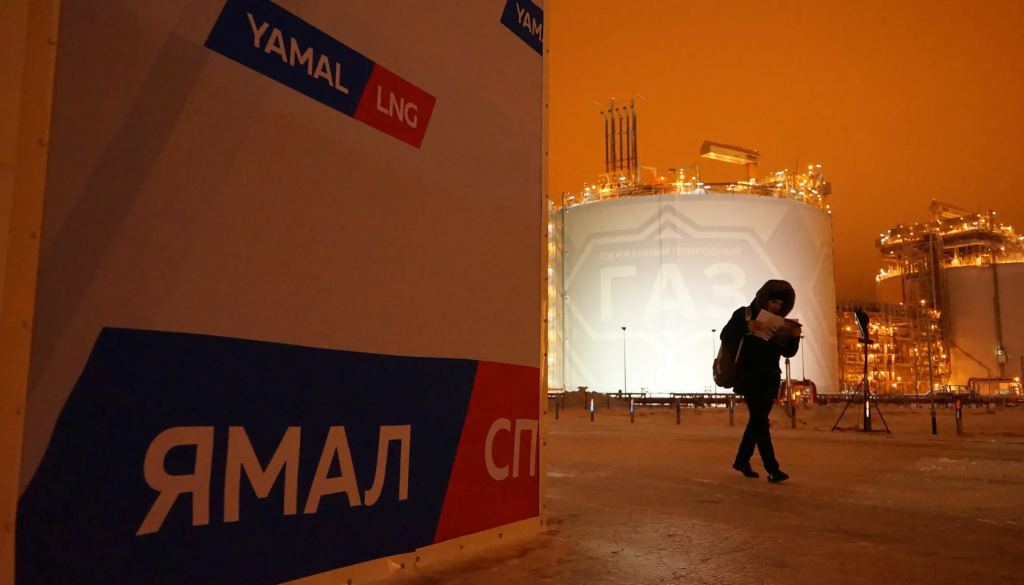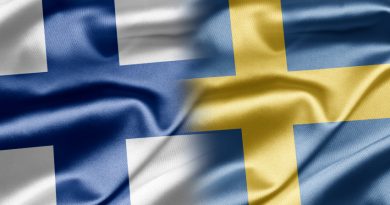New EU sanctions package targets Russian LNG

“It is time to turn off the tap,” President of the EU Commission Ursula von der Leyen emphasised as she announced the Union’s 19th sanctions package against Russia. Europe will halt imports of Russian liquified natural gas (LNG).
The European leader used strong words in her condemnation of Russia and its continued war of aggression against Ukraine.
“Unfortunately, over the past month, Russia has shown the full extent of its contempt for diplomacy and international law,” she said and specifically mentioned the large-scale drone and missile attacks against civilian targets in Ukraine, as well as air space violations in Poland and Romania.
Russia’s energy sector is the key target in the 19th sanctions package. The EU is banning imports of LNG and is adding another 118 Russian vessels to its sanctions list. State oil companies Rosneft and Gazpromneft are put under a full transaction ban, and trade restrictions are aimed at refineries, oil traders, petrochemical companies in third countries, including China, the EU Commission reports.
As soon as the sanctions come in force, the Russian LNG industry is likely to face serious challenges. The country has the lion’s share of its LNG production in the Arctic, and the carriers that today shuttle between the LNG terminal of Sabetta in Yamal and European ports will soon have to find other markeds.
As Ursula von der Leyen announced the the new sanctions, at least four LNG carriers were sailing along Norway’s coast en route to or from a Russian LNG terminal, ship traffic data show. Another six were sailing on the Northern Sea Route. Several more were in the Russian part of the Barents Sea.
Sanctions against the energy sector are key to hurting Putin’s war efforts, von der Leyen argues.
“Russia’s war economy is sustained by revenues from fossil fuels. We want to cut these revenues,” she emphasised. Europe is well prepared, she made clear.
“It is time to turn off the tap. We are prepared for this. We have been saving energy, diversifying supplies and investing in low-carbon sources of energy like never before,” she said.
Currently about 19 percent of Europe’s gas still comes from Russia, via the TurkStream pipeline and LNG shipments, a decline from about 45 percent before 2022, Reuters reports. EU members Spain, Belgium, the Netherlands and France still import Russian LNG.
The EU Commission also announced that it is taking measures on the so-called immobilised Russian assets
“We must be very clear: This is Russia’s war, and the perpetrator must pay for it,” Ursula von der Leyen said.
Related stories from around the North:
Arctic: China’s Arctic involvement ‘highly exaggerated,’ Harvard researchers say, The Canadian Press
Canada: Lithium company exploring N.W.T. hopes to refine material in Canada, not China, CBC News
Finland: Finland hails plan for allies to join NATO land forces in North, The Independent Barents Observer
Iceland: Iceland’s FM announces defence review, calls revamped security policy ‘urgent’, Eye on the Arctic
Norway: China asked to remove stone lions from Arctic research station in Svalbard, The Independent Barents Observer
Russia: Russia and China bless vast new Power of Siberia 2 pipeline, Gazprom says, Reuters
Sweden: Nordic-Baltic region joins forces around Sweden’s CV90, The Independent Barents Observer
United States: U.S. regulator eyes Arctic shipping chokehold as key deadline approaches, Eye on the Arctic



